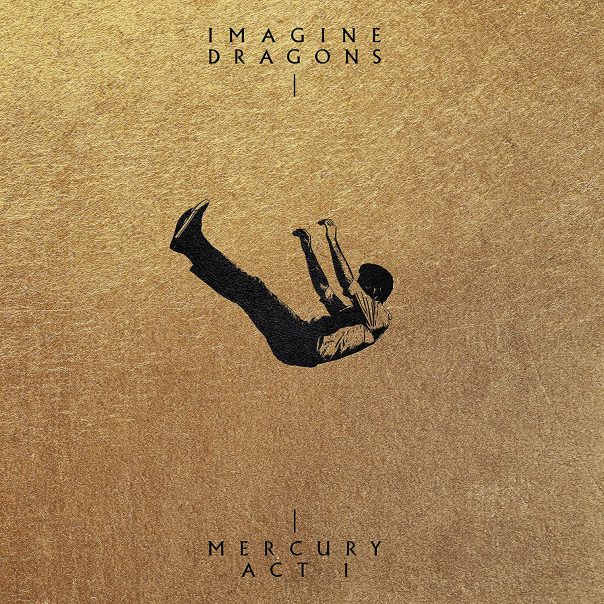REVIEW: Imagine Dragons positively unpredictable on ‘Mercury – Act 1’

Imagine Dragons, “Mercury – Act 1.”
After an intense six-year run that saw Imagine Dragons release four albums, tour non-stop and release hit after hit, the band finally pumped the brakes. Not all of that was due to the pandemic; they were already planning to refocus. With that break now behind them, they’ve teamed up with Rick Rubin for their fifth album, Mercury — Act 1. The super producer has a signature style of peeling back layers of an artist and creating a dramatic shift in sound. And that’s jut what happened here.
Mercury — Act 1
Imagine Dragons
KIDinaKORNER/Interscope, Sept. 3
7/10
Mercury leaves intact Imagine Dragons’ warlike percussive elements but does it in a way that’s both subdued and intricate. Oddly, the opening track, “My Life,” actually starts in a different direction. It’s a lavish introspective ballad laced with strings, keys and minimal bells and whistles. Frontman Dan Reynolds‘ voice also focuses on a nuanced delivery, leaving room for slight inflection changes.
“Lonely” then quickly shifts 180 degrees. The track is a bass-heavy acoustic romp with a thumper of beat leading the way. Reynolds jumps back and forth between his falsetto delivery with some added gang vocals. “Oh, Lord have mercy on me/ And keep me company,” Reynolds sings on the vivacious chorus. Single “Wrecked” preceded the album and also serves as an interesting stylistic fusion that focuses on doing more with less. Reynolds wrote the track in response to the loss of his sister-in-law to cancer.
Synth-heavy “Monday” doubles down on Reynolds’ more restrained delivery, occasionally dropping to a near-whisper. The track mixes in the occasional flash of ’80s synths, a Talking-Heads-like quality, but in the context of a 2021 alt-rock track. It’s a fun and weird song that you might not initially think of as an Imagine Dragons track.
The beats and unusual time signatures define the trippy alt-R&B splash of “#1.” The uplifting track features Reynolds as ever the optimist singing, “When all is said and done/ I’m still my number one.” The vocals on “Easy Come Easy Go,” meanwhile, make it a standout. The choppy rhythmic cadence of the chorus fits in lockstep.
Reynolds’ delivery throughout the album is interesting and toes the line between offering something entirely new alongside a glimpse of familiarity to long-time fans. If you want to hear some early Imagine Dragons, you can find hints on “Giants,” which briefly harkens back to the band’s earliest days by hopping from rhythmic, rhymed verses to aggressive, near-scream choruses. The band honed in on the dynamics of the record, leaving us the listeners off balance.
“It’s OK” begins as an intricate and laidback acoustic jam that keeps adding musical layers until crescendoing into the group-sung chorus. “It’s OK to be not OK,” Reynolds sings on the mental-health-focused track, a message the band sticks by throughout.
“Dull Knives” provides yet another sharp shift, this time in the heavier direction. The riff-laden rocker fuses a ’90s grunge attitude with modern alt-rock sensibility—featuring both some excellent vocal work from Reynolds and a blistering solo from guitarist Wayne Sermon.
The heavy beats and percussion return for “Follow You,” a heavy yet atmospheric stomper that fuses pop and rock. The trippy “Cutthroat” is a fun rock and roll detour that stands out on its own on this album. While aggressive, Imagine Dragons pick moments to step back for a more refined sound before unleashing the assault all over again. Reynolds brings the melody on the soaring “No Time For Toxic People,” which fuses tight rhythms, unique synths and an uplifting message—something for which the band has always been known.
The album concludes with an upbeat campfire acoustic jam that mixes a pinch of R&B and reggae in Reynolds’ vocal harmonies. The Las Vegas rockers’ latest effort will certainly be a grower for some fans. The songs need time to sink in and process, and the album requires a few listens to get the flow of things. Bands should be rewarded for forcing themselves to try new things, and that’s on full display here. Rick Rubin extracted something new from Imagine Dragons that not only pays off on this album, but should also continue to do so in the future.
Follow writer Mike DeWald at Twitter.com/mike_dewald.
